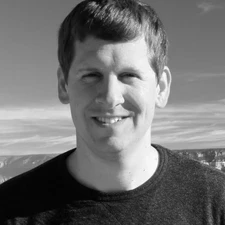Tobias Keller

GD Geodynamics
The 2020 Division Outstanding Early Career Scientist Award is awarded to Tobias Keller for outstanding scientific contributions related to understanding magma dynamics and igneous systems in the mantle and lithosphere, including the roles of volatiles and reactive flow.
Tobias Keller conducts multidisciplinary frontier research on some of the most challenging problems concerning processes related to the generation, transport and emplacement of magmas using the tool of numerical modeling to advance our understanding. In this way he has made important and lasting contributions to the field of lithosphere and computational geodynamics.
While Keller’s earliest scientific publications were on planetary geodynamics, he soon shifted his interests to magmatic systems. His first major breakthrough related to magmatic systems was to build simulations of how magma propagates from the asthenosphere through the lithosphere to the crust, for which he developed the first mathematical/numerical formulation of two-phase flow that takes into account all relevant deformation mechanisms (viscous, elastic and plastic) as well as all key magma transport mechanisms (diking, diapirs and porosity waves) within a self-consistent framework. With this he was able to understand the different ways in which magma propagates through the lithosphere and under what conditions they occur.
In Keller’s second major breakthrough, he described new ways to include thermodynamic reactions in geodynamic models and demonstrated how volatiles channelise flow both towards and away from mid-ocean ridges, thereby metasomatising the mantle lithosphere and shaping the lithosphere-asthenosphere boundary. Most recently, with his third major breakthrough, Keller developed the first comprehensive mathematical framework for multi-phase fluid dynamics, with which it is possible to simulate not only the deep parts of the magmatic systems, but also the volcanic eruption stage that involves gas, fluid, and solid phases. This is a crucial step to better understanding and quantifying the interactions between the deep Earth and the atmosphere as well as the physics of lithospheric-scale magmatic systems and is expected to become a milestone in the field.
The papers that Keller has published are of a quality and breadth that truly push and extend the boundaries of computational geodynamics. His work has already left a lasting imprint on the broad research field of magmatic systems and links geodynamics with volcanology, petrology, and seismology. Thus, he is a most deserving Early Career Scientist Awardee.
